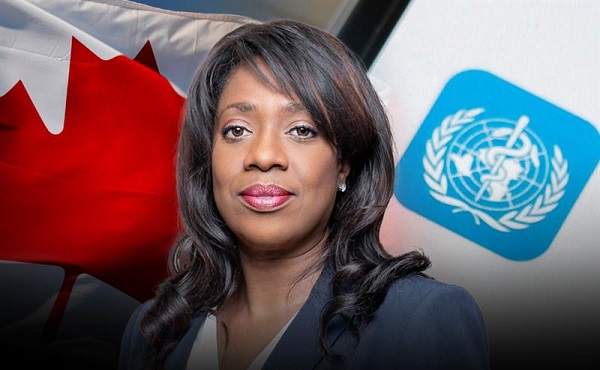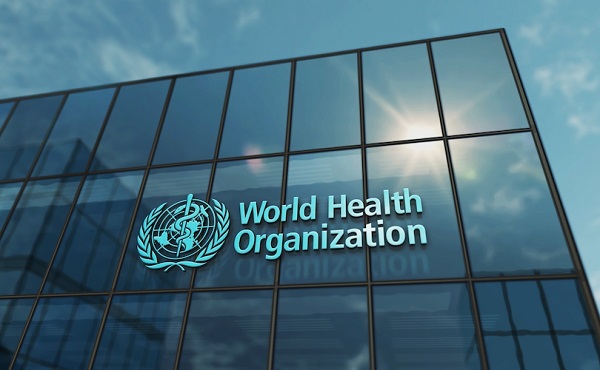Health
CACAC Enters Sprint for Final Million in Public Fundraising

The Central Alberta Child Advocacy Centre (CACAC) has hit a major milestone in public fundraising.
The new Sheldon Kennedy Centre of Excellence (SKCOE), a project started by the CACAC, is nearly complete. The building, situated on the Main Campus of Red Deer Polytechnic (RDP), has entered the final stage of completion. Along with construction milestones, the CACAC has also hit a major fundraising milestone, having raised $11.65 million of the $12 million dollar public fundraising goal set last year.
“We stand on the cusp of something truly remarkable,” says CACAC CEO Mark Jones. “We’re witnessing what happens when a community comes together in support of vulnerable children and youths in Central Alberta. We’re asking the public to help us through this final sprint to the finish line. Become a Champion of Courage – donate today to help us create lasting change.”
The SKCOE is currently home to the CACAC, the Central Alberta Sexual Assault Support Centre, and the newly-named MNP Move Your Mood Studio. Alberta Health Services’ Mental Health Outpatient Clinic is set to move in soon to the recently-named Lindsey More Youth Mental Health and Addiction hub on the second floor, and AHS’ Step Up Step Down program will move in on floor one. The new building triples capacity for Step Up Step Down, and brings unique and much-needed mental health services to Central Alberta. The SKCOE boasts more than forty mental health therapy rooms, and the connection with RDP allows for greater research and development.
“This facility is going to make a huge impact on generations of Albertans,” says Jones. “Thanks to this generous community, we have been able to get to where we are today. With one last push, we can cross the finish line. Every donation made, even five dollars, pushes us closer to being able to build a future of hope for those who require not just our services at the CACAC, but the varied services from all of our partners in the Sheldon Kennedy Centre of Excellence.”
The CACAC has also announced that they plan to do a public Grand Opening event some time in May, and encourages people to keep an eye on their website and social media platforms to keep up to date. To learn more about the Sheldon Kennedy Centre of Excellence, and to donate, visit https://www.centralalbertacac.ca/centre-of-excellence/
About CACAC: The Central Alberta Child Advocacy Centre is a not-for-profit organization rooted in the protection and recovery of today’s most innocent and vulnerable – our children. The Centre is comprised of a collective that is driven by the courage to support children, youth, and their families affected by abuse, enabling them to build enduring strength and overcome adversity. We work in a collaborative partnership with the Alberta Children and Family Services, Alberta Health Services, Alberta Justice, Alberta Education, Red Deer Polytechnic, the Central Alberta Sexual Assault Support Centre and the RCMP. Together we harness our collective courage to provide children with supported recovery.
For more information on CACAC, please visit: centralalbertacac.ca
Health
Sovereignty at Stake: Why Parliament Must Review Treaties Before They’re Signed

For years I have been closely following the activities of the World Health Organization and Canada’s involvement with the Global Pandemic Treaty.
Thanks for reading! Subscribe for free to receive new posts and support my work.
This treaty, once ratified, will directly influence the public health decisions and responses of all signatory countries.
I have raised red flags about its implications on Canada’s health sovereignty and the federal government’s willingness to enter a legally binding treaty of this weight without any input from Parliament.
In May 2025, after many rounds of negotiations, the World Health Assembly adopted the main text of the treaty. However, it has not yet been signed or ratified – meaning Canada has not yet agreed to be legally bound by the treaty.
We are now in a critical window of opportunity to ask tough questions and debate the treaty before it is signed by the Minister of Foreign Affairs and binds our nation.
What You Can Do
We need your help to get this treaty before Parliament so that your elected Member of Parliament can ask questions and hold the government accountable on Canada’s behalf.
Here’s what you can do:
- Sign this petition that calls on the Prime Minister to allow Parliament the opportunity to review and debate the pandemic treaty before it is signed and ratified.
- Write to your Member of Parliament to ask that they publicly support that same call for parliamentary review.
- Share this post and the petition to drum up the momentum and pressure in Ottawa.
Why This Matters
During the COVID-19 pandemic, we witnessed the WHO’s failures at a global level;. and, nationally, under the expansive claim of the “health and safety of Canadians,” basic civil liberties were suspended broadly and at length. Canadians are rightly concerned that a legally binding agreement could cede too much authority to an unelected and unreliable international organization the next time a pandemic is declared. Meanwhile, five years after COVID-19, the government has yet to show it is serious about improving its pandemic response, with no public inquiry into its actions and decisions during the crisis.
The Background Story of the Global Pandemic Treaty
In December 2021, while the world was still in the grip of the COVID-19 pandemic, the WHO proposed a Pandemic Treaty, known as the Pandemic Prevention, Preparedness and Response Agreement. This would be a legally binding framework that, would seek to prevent and manage future pandemics. Once in force, the treaty would “guide” each country’s response through recommendations to adopt specific measures, such as those related to vaccines, surveillance, data sharing, and travel.
In parallel, the WHO moved to amend the International Health Regulations (IHRs) – the existing legal framework that governs its authority. Over 300 amendments were proposed and later adopted, including a new category called “pandemic emergency” – giving the WHO broader authority to trigger a global response.
Both the treaty and the IHR amendments sparked scrutiny worldwide over the expanded legal powers they could grant the WHO. Many expressed great concern about the level of powers that the WHO would have over national and provincial decision-making during a global public health emergency – concerns that continue with the final treaty text.
Here at home, I launched petitions to call attention to the treaty and its implications – particularly the fact that Parliament had neither debated nor voted on Canada’s participation in a legally binding treaty. I repeatedly urged the government to reject certain amendments or opt out entirely. I wrote to the Minister of Health multiple times to demand answers and transparency.
On May 20, 2025, after three years of negotiations, the World Health Assembly adopted the treaty by consensus. (Notably, the United States did not participate in the negotiations and is not bound by the treaty.)
One key component of the WHO Pandemic Treaty — an annex on sharing pathogens and vaccines — is still being negotiated. Once that section is finished, countries, including Canada, can sign and ratify the agreement.
Canada is currently reviewing domestic laws to make sure they align with the newly adopted IHRs, and plans to table the amended regulations in Parliament this year. The Pandemic Treaty, which is distinct yet negotiated in parallel, will likely be tabled in Parliament only after the annex is complete. Together, the two pieces will form the core of the WHO’s new pandemic response framework.
How You Helped Shape the Final WHO Pandemic Agreement
Early drafts of the WHO Pandemic Agreement included broad provisions on global surveillance, misinformation control, and travel or vaccine measures that raised serious concerns about transparency and national sovereignty.
It was the pushback from concerned and informed citizens like you that forced these changes. Your sustained engagement led negotiators to scale back or remove the most contentious sections.
By the time the final text was adopted in May 2025:
- References to “misinformation” and “infodemic management” were removed entirely, ensuring the WHO has no authority over domestic speech or information controls.
- Clauses that could have enabled travel bans, vaccine mandates, or lockdown coordination were replaced with explicit guarantees of national sovereignty.
- Provisions on surveillance and data sharing were narrowed to voluntary cooperation, with safeguards for privacy and domestic law.
This outcome is a direct result of public vigilance and civil-society advocacy, proving that when citizens engage, international negotiations become more accountable, transparent, and respectful of national democracy.
We Must Insist on Parliamentary Oversight
Many people are unaware that Parliament is not required to debate or approve international treaties before ratification. MPs may request debate, but it is not guaranteed. Canada’s treaty ratification process is governed by policy, rather than law, and remains fully controlled by government (through Cabinet), which can waive or bypass when necessary.
In Canada today, the government — not Parliament — has the final say on signing and ratifying international treaties.
The Minister of Foreign Affairs is supposed to table new treaties in the House of Commons for 21 sitting days so MPs can see them, but this review is only a formality. Parliament can debate the issue or pass laws to make the treaty work inside Canada, but it never votes to approve or reject the treaty itself.
If the government wants to move quickly, it can even skip the 21-day waiting period.
In fact, Canada’s Parliament has never fully reviewed or voted on a treaty before it was ratified — not once in our history. Every other G7 country has a legal process that gives their parliaments that power. Canada is the only one that doesn’t, and as such major international agreements can be signed without real parliamentary oversight or accountability.
A Proposed Law to Review Treaties Before Ratification
There is a private member’s bill before Parliament — Bill C-228 — that aims to make Canada’s treaty process more transparent and accountable. It’s written in the right spirit, recognizing that major international agreements should be reviewed by Parliament before Canada is bound by them.
However, the bill is technically weak and poorly structured, which could make it hard to review the number of international documents that Canada signs each year. Still, it raises an important principle: Canadians deserve strong oversight when their government makes binding commitments abroad.
International cooperation is important, but only Canada’s Parliament should set our national direction. Safeguarding sovereignty and democracy means ensuring the people’s representatives—not the government in power alone—have a voice in every major decision.
Before Canada Signs, Canadians Must Be Heard
Thanks to the engagement of countless Canadians and concerned citizens around the world, the most extreme provisions in the WHO Pandemic Treaty were removed ——these measures would have undermined national healthcare sovereignty and given international bureaucrats sweeping powers. The removal of provisions on vaccine mandates, misinformation and disinformation, censorship requirements, travel restrictions, global surveillance, and mandatory health measures happened because people paid attention and spoke up!
But Canadians should not have to fight this hard every time.
We need a permanent, transparent process in our own Parliament to review and debate major treaties before Canada commits to them. A national treaty review law would act as a democratic safeguard, ensuring that future agreements are examined openly, that overreach is checked, and that the voices of Canadians are always heard before any government binds the country to new international obligations.
Until that safeguard is in place, let’s continue to raise our voices. Before Canada ratifies the Pandemic Treaty, sign the petition, write to your MP, and share this call to make sure Parliament, and Canadians, have a say about which international treaties will bind our nation.
In Your Service,
Leslyn Lewis
Member of Parliament for Haldimand—Norfolk
Thanks for reading!
Subscribe for free to receive new posts and support my work.
Health
Canada surrenders control of future health crises to WHO with ‘pandemic agreement’: report

From LifeSiteNews
Canada’s top constitutional freedom group warned that government officials have “relinquished” control over “future health crises” by accepting the terms of the World Health Organization’s (WHO) revised International Health Regulations (IHR).
The warning came in a report released by the Justice Centre for Constitutional Freedoms (JCCF). The group said that Prime Minister Mark Carney’s acceptance earlier this year of the WHO’s globalist-minded “pandemic agreement” has “placed Canadian sovereignty on loan to an unelected international body.”
“By accepting the WHO’s revised IHR, the report explains, Canada has relinquished its own control over future health crises and instead has agreed to let the WHO determine when a ‘pandemic emergency’ exists and what Canada must do to respond to it, after which Canada must report back to the WHO,” the JCCF noted.
The report, titled Canada’s Surrender of Sovereignty: New WHO health regulations undermine Canadian democracy and Charter freedoms, was authored by Nigel Hannaford, a veteran journalist and researcher.
The WHO’s IHR amendments, which took effect on September 19, are “binding,” according to the organization.
As reported by LifeSiteNews, Canada’s government under Carney signed onto them in May.
Hannaford warned in his report that “(t)he WHO has no legal authority to impose orders on any country, nor does the WHO possess an army, police, or courts to enforce its orders or regulations.”
“Nevertheless, the WHO regards its own regulations as ‘an instrument of international law that is legally binding on 196 countries, including Canada” he wrote.
Hannaford noted that “Surrendering Canada’s sovereignty” to the IHR bodies is itself “contrary to the constitutional principle of democratic accountability, also found in the Canadian Charter of Rights and Freedoms.”
“Canada’s health policies must reflect the needs, desires, and freedoms of Canadians – not the mandates of distant bureaucrats in Geneva or global elites in Davos. A free and democratic Canada requires vigilance and action on the part of Canadians. The time to act is now” he wrote.
Among the most criticized parts of the agreement is the affirmation that “the World Health Organization is the directing and coordinating authority on international health work, including on pandemic prevention, preparedness and response.”
While the agreement claims to uphold “the principle of the sovereignty of States in addressing public health matters,” it also calls for a globally unified response in the event of a pandemic, stating plainly that “(t)he Parties shall promote a One Health approach for pandemic prevention, preparedness and response.”
Constitutional lawyer Allison Pejovic noted that “(b)y treating WHO edicts as binding, the federal government has effectively placed Canadian sovereignty on loan to an unelected international body.”
“Such directives, if enforced, would likely violate Canadians’ Charter rights and freedoms,” she added.
Hannaford said that “Canada’s health policies must be made in Canada.”
“No free and democratic nation should outsource its emergency powers to unelected bureaucrats in Geneva,” he wrote.
The report warned that new IHR regulations could mandate that signatory nations impose strict health-related policies, such as vaccine mandates or lockdowns, with no “public accountability.”
“Once the WHO declares a ‘Pandemic Emergency,’ member states are obligated to implement such emergency measures ‘without delay’ for a minimum of three months,” the JCCF said.
“Canada should instead withdraw from the revised IHR, following the example of countries like Germany, Austria, Italy, the Czech Republic, and the United States,” the JCCF continued. “The report recommends continued international cooperation without surrendering control over domestic health policies.”
Earlier this year, Conservative MP Leslyn Lewis condemned the Liberal government for accepting the WHO’s IHR.
-

 MAiD2 days ago
MAiD2 days agoDisabled Canadians increasingly under pressure to opt for euthanasia during routine doctor visits
-

 Brownstone Institute2 days ago
Brownstone Institute2 days agoThe Doctor Will Kill You Now
-

 Agriculture5 hours ago
Agriculture5 hours agoFrom Underdog to Top Broodmare
-

 Carbon Tax1 day ago
Carbon Tax1 day agoBack Door Carbon Tax: Goal Of Climate Lawfare Movement To Drive Up Price Of Energy
-

 International1 day ago
International1 day agoTrump, Putin meeting in Hungary called off
-

 Alberta1 day ago
Alberta1 day agoCalgary’s High Property Taxes Run Counter to the ‘Alberta Advantage’
-

 Digital ID2 days ago
Digital ID2 days agoToronto airport requests approval of ‘digital IDs’ for domestic airport travel
-

 Alberta15 hours ago
Alberta15 hours agoAlberta’s licence plate vote is down to four




